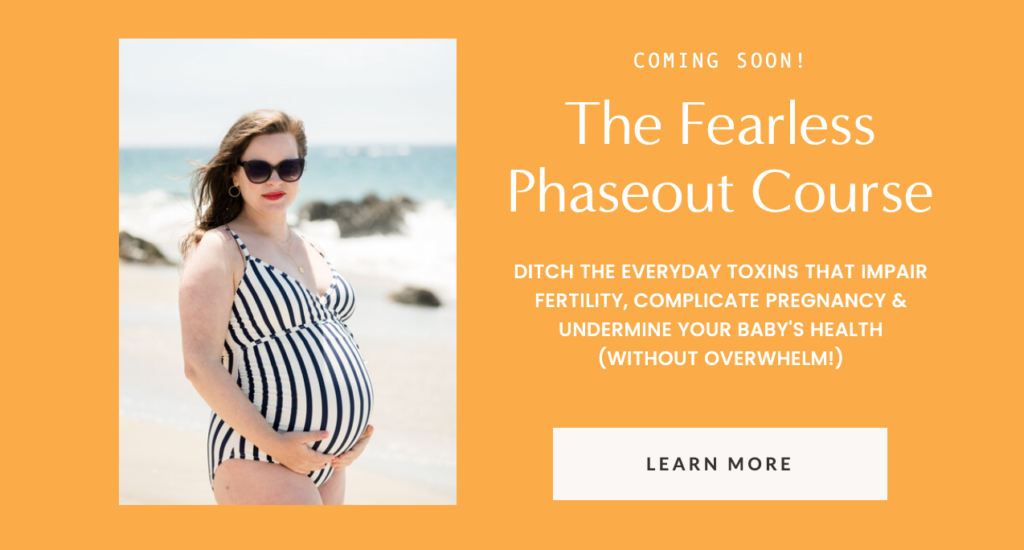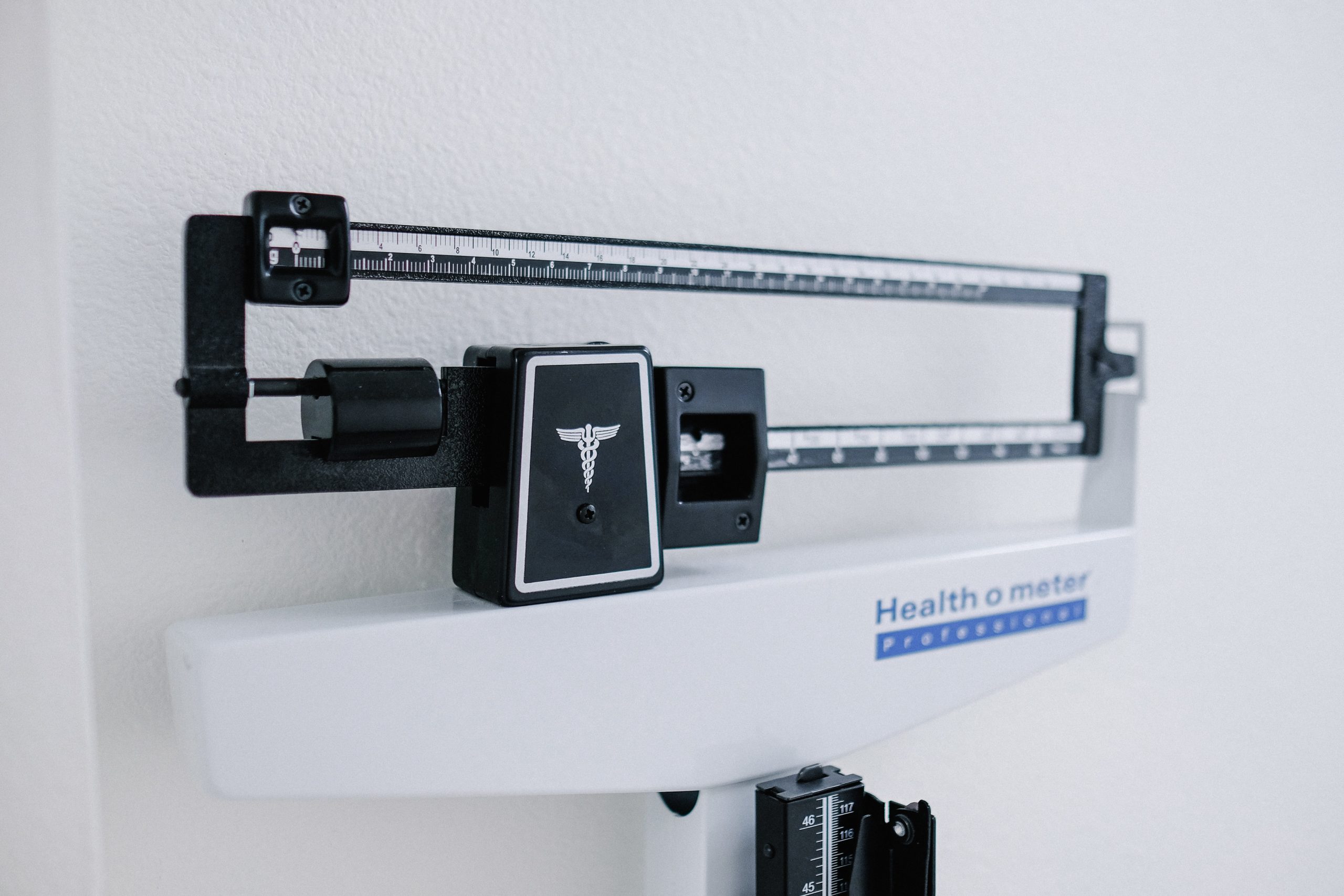
Here they are…Seven ideas for having a healthy barbecue this Labor Day by reducing your exposure to environmental toxins. Remember: something is better than nothing. Don’t let “perfect be the enemy of good” because you don’t feel like you can make all of these changes right away. Pick some that feel doable and enjoy your weekend! Bookmark this page to return to in the future. Cheers to a happy, healthy barbecue with your family and friends!
Tip #1: Skip the Aluminum Foil on the Barbecue
I love the ease of foil-wrapping fish with some garlic, olive oil, and herbs and throwing it on the grill. It’s so simple and makes for such a succulent, aromatic fish with its own “sauce.”
But here’s the thing…aluminum is a known neurotoxic metal that leaches into the foods it comes into contact with. Heat (like your BBQ) and acidity (like tomatoes or lemon slices) make the leaching far more easy.
So, let’s skip the foil and opt for parchment instead. If you can’t keep the item on an upper rack, you could, alternatively, wrap your food in parchment and then enclose that in foil. This way, you’ll keep the leaching from entering your food directly.
Tip #2: Use Heat-Safe Barbecue Tools
Do you have a trusty plastic spatula? If you look closely, you’ll likely notice a jagged, worn edge. I’m sorry to tell you that you’ve been eating that spatula. Heat causes plastics to break down and leach into your foods.
Instead, opt for stainless steel spatulas and tongs. And make sure you transfer your steamy BBQ’d fare onto a wooden butcher block, glass or ceramic trays, or place a stainless steel rack over your plastic tray so the food doesn’t come into direct contact.
Tip #3: Ditch the Plastic Wrap & Tupperware
Heat, acidity, fat, and abrasions all break down plastic storage items. And that means the plastics (BPA and its corollaries) are entering your foods. These chemicals are known endocrine disruptors, which can interfere with hormone levels and your body’s intricate physiological processes.
Opt for glass storage containers when putting away your leftovers.
Tip #4: Bring Your Own Reusable Water Bottle (or Offer Cups)
Most plastic water bottles contain PET (polyethylene teraphthalate). Water bottles – especially those that have been sitting out on a hot day – leach PET, a chemical that mimics estrogen and sends signals to your hormone receptors that estrogen levels are higher than they actually are.
Bring your own glass bottle to refill as needed, or – if you’re hosting – offer your guests non-plastic options like chemical-free bamboo or glass cups filled from non-plastic carafes or jugs.

Tip #5: Opt for Organic Produce
Pesticide use is a major topic with a lot of nuance – way more than I can dig into in this post!
The important takeaway is that most pesticides mess up hormone levels – and hormones are one of the main ways your body communicates with itself. When chemicals artificially distort your hormone levels, your body misinterprets how it’s operating and the whole system can become confused, leading to undesirable symptoms.
Eating organic produce isn’t a perfect fix, but it’s an improvement over fruits and veggies sprayed with synthetic pesticides. So if you’re slicing tomatoes, or leafing lettuce to go on your healthy barbecue burgers, opt for organic.
Tip #6: Choose Pasture-Raised or Grass-Fed Meat & Dairy
“Fat loving” (or lipophilic) refers to chemicals like PCB’s, dioxins, and other pollutants that stick to fat. These enter into livestock through feed and injections and bond to the fat in the animal.
When we consume the meat or dairy byproducts of these animals, these lipophilic chemicals enter the human body. In our bodies, they bond with our own fat and can accumulate over decades, causing some major health problems.
This can be a particular concern for breastfeeding parents as breastmilk has a high fat content and can carry these harmful toxicants over to the infants. (Learn more about how to reduce your toxins exposure for fertility, pregnancy, and postpartum HERE).
Buying high quality meat and dairy that are certified pasture-raised or grass-fed drastically reduces your intake of these harmful lipohilics. It’s also better for the animals, the workers, and the planet.
Tip #7: Apply “Physical” Sunscreen
Ok, we don’t always think about what goes on our body as being a big part of making a healthy barbecue, but this tip is a big one!
Physical sunblocks are made with active ingredients – most commonly zinc oxide – meant to stay on the surface of your skin. Chemical sunblocks are made with active ingredients like oxybenzone, avobenzone, homosalate, octisalate, octocrylene, and octinoxate. Companies use these chemicals precisely because they are easily absorbed into the skin.
Studies show they are known or suspected to contribute to hormone disruption, obesogenic effects, reduced thyroid function (studied in children), concerns for impaired reproductive and neurological development, and increased likelihood of metastatic breast cancer.
Fortunately, more options for effective, toxins-free sunscreens are becoming available as the public becomes aware of potentially harmful components of chemical sunscreens (you heard about the Neutrogena and Aveeno sunscreen recall, right?).
In the past, many of these products left a streaky, white caste on the skin, making them more available to white people and leaving people of color with few desirable options. Many companies are finally making physical sunscreens formulated specifically for olive, brown, and black skin tones.
When choosing a physical sunscreen (zinc oxide or titanium dioxide), opt for fragrance-free, PEG-free, and parabens-free. Also, reapply after swimming or towel-drying, and every 80 minutes to be safe!
Never miss a post!
Subscribe to We Get To Be Well mail here.
Plan your Fearless Phaseout!
Join the waitlist for Fearless Phaseout, the course to help you reduce your exposure to the everyday toxins that impair fertility, complicate pregnancy, and undermine your and your baby’s health. Click here!




+ show Comments
- Hide Comments
add a comment